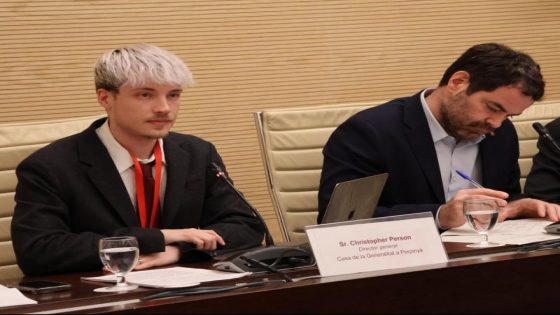The CUP has called for the immediate dismissal of Daniel Christopher Person, the Generalitat delegate in Perpignan, following his refusal to discuss Catalonia Nord due to “institutional neutrality.” This demand comes amid rising tensions regarding Catalan representation and identity. On March 28, 2025, the political landscape in Catalonia saw a significant stir as the CUP urged ERC, Junts, and the Comuns to unite against what they view as an affront to Catalan dignity.
- CUP demands resignation of Daniel Christopher Person
- Allegations of disrespect towards Catalan identity
- Call for unity among ERC, Junts, and comuns
- Criticism of Salvador Illa's inaction
- Concerns about cultural and political oppression
CUP’s Call for Action: A Test for Catalan Unity and Identity
How will Catalonia’s political parties respond to this urgent call? The CUP believes that the refusal of Person to engage in discussions about Catalonia Nord is not just a political misstep but a serious insult to the Catalan people. They argue that this situation is intolerable and demands immediate action from other political parties to protect Catalan identity.
The Implications of Daniel Christopher Person’s Stance on Catalonia Nord
The CUP’s stance highlights the ongoing struggle for Catalan identity in the face of perceived oppression by both the French and Spanish states. This issue resonates beyond Spain, as it touches on themes of self-determination and cultural rights that are relevant to many regions worldwide.
Understanding the CUP’s Position on Catalan Representation
The CUP argues that a delegate who denies the Catalan identity cannot effectively represent the interests of the Catalan people. This raises questions about who gets to speak for a community and what happens when those voices are silenced.
- The CUP demands immediate action from ERC, Junts, and the Comuns.
- They view the refusal to discuss Catalonia Nord as an insult to Catalan dignity.
- Political unity among Catalan parties is seen as essential for addressing these issues.
- The situation reflects broader themes of identity and representation in global politics.
The Role of Political Unity in Catalonia’s Future
Political unity among Catalan parties is crucial for addressing the challenges posed by figures like Person. The CUP emphasizes that collaboration is necessary to ensure that Catalan voices are heard and respected. Without this unity, the risk of further marginalization increases, threatening the cultural and political fabric of Catalonia.
Potential Outcomes of the CUP’s Demands
The CUP’s call for action could lead to significant changes in Catalonia’s political landscape. If other parties rally behind this demand, it may result in a more cohesive approach to defending Catalan identity. Alternatively, failure to act could embolden those who dismiss Catalan concerns, leading to increased tensions.
In conclusion, the CUP’s demand for the dismissal of Daniel Christopher Person highlights critical issues of identity and representation in Catalonia. The response from other political parties will be pivotal in shaping the future of Catalan politics and its place in the broader context of regional autonomy.

































